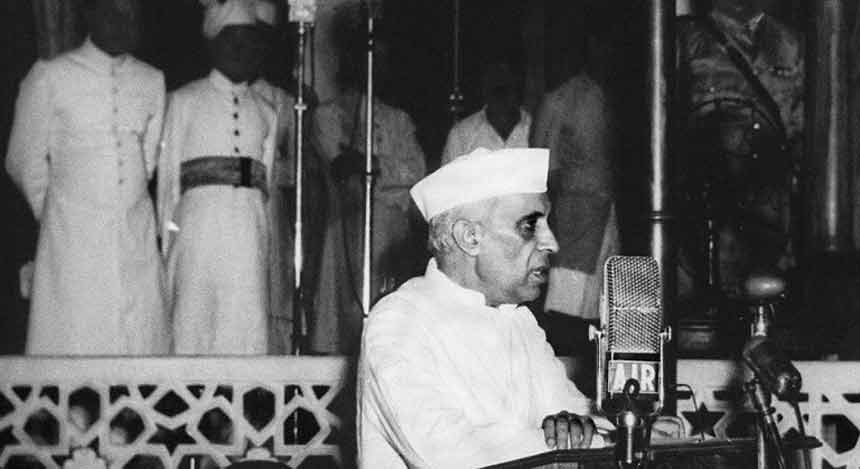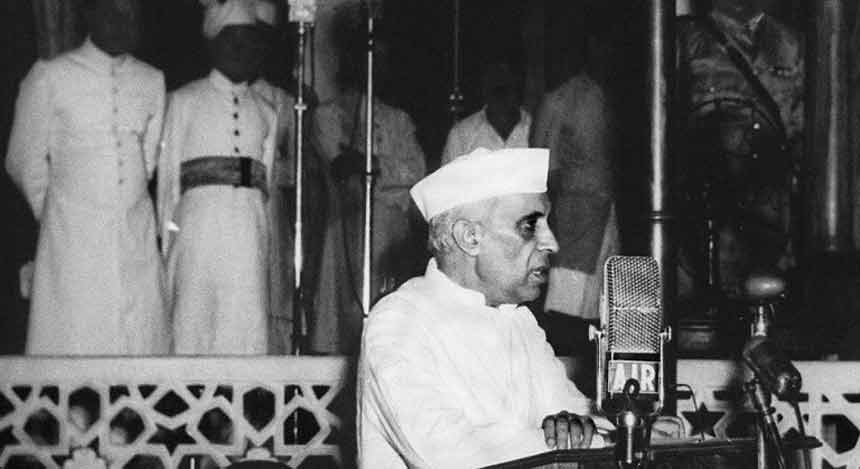[caption id=“attachment_85863” align=“alignleft” width=“860”]
 As Narendra Modi prepares to take oath as India’s 15th prime minister, Firstbiz decided to take a look at India’s former premiers and the economic policies that marked their tenure. Here’s a trip down memory lane.
Jawaharlal Nehru: Independent India’s first prime minister chose the path of socialism - stressing on a mixed economy focusing on agricultural reform and industrialisation. He believed a strong industrial foundation is what would drive India’s growth, which is why the government invested heavily in iron, steel, power and coal. Nehru also set up the Planning Commissions to lay out the country’s economic growth roadmap. Image: AFP[/caption]
[caption id=“attachment_85864” align=“alignleft” width=“860”]  Indira Gandhi: India Gandhi is most famously associated, economically at least, with nationalising 14 scheduled commercial banks in 1969. The move helped increase household savings and received the public’s approval, resulting in nationalisation of steel, coal and copper, among other sectors. Image: AFP[/caption]
[caption id=“attachment_85865” align=“alignleft” width=“860”]  Rajiv Gandhi: Rajiv Gandhi’s economic legacy includes liberalising India’s foreign trade regime dismantling the Licence Raj regime. He supported science and technology initiatives and cut taxes on related industries like airlines, telecommunications and defence. He is also responsible for the ubiquitous PCOs found all across India, creating MTNL and laying the foundation for India’s vibrant telecom sector. Image: Reuters[/caption]
[caption id=“attachment_85866” align=“alignleft” width=“860”]  VP Singh: A former Finance Minister with the Rajiv Gandhi government, Singh is credited with beginning the process of economic liberalisation. As Prime Minister in 1989 he is credited with changes in direct taxes and raising indirect taxes. The government also waive off the agricultural loans to farmers. However, it was hit badly by the forex reserves being withdrawn by non-resident Indians as well as spiralling oil prices during the Gulf war. Image: AFP[/caption]
[caption id=“attachment_85867” align=“alignleft” width=“860”]  Narasimha Rao: Taking over in June 1991, Rao inherited high inflation, precarious balance of payments situation and falling foreign reserves. Rao is credited with giving a free hand to his finance minister Manmohan Singh to liberalise the economy which meant cutting government red tape for investments, reducing subsidies and privatising state run industries. Image: Reuters[/caption]
[caption id=“attachment_85868” align=“alignleft” width=“860”]  Atal Bihari Vajpayee: The Vajapyee government between 1999 and 2004 is credited with taking economic liberalisation further under Finance Minister Yashwant Sinha. It privatised public owned industries, and worked to bolster industrial production and exports with schemes including the National Highway Development Project. GDP growth also hit new highs of 8 percent while he was in charge. Image: Reuters[/caption]
[caption id=“attachment_85869” align=“alignleft” width=“860”]  Manmohan Singh: Singh inherited an economy in better shape and promised to take forward reforms but with a human face. As part of this, the United Progressive Alliance launched a slew of programmes aimed at the rural poor like MNREGA. It also waived off loans to farmers. While the idea was to balance the economic liberalisation with schemes for the poor, critics say the rights-based approach drained the economy and fiscal deficit hit the roof. His first five years were a golden era with the economy booming on the strength of the easy money from developed nations. However, everything came to an end with the global financial crisis in 2008. The UPA’s second term undid all the good work done by the first five years as rampant corruption in natural resources’ allocation brought to light an extremely incompetent administration. Image: Reuters[/caption]


)
)
)
)
)
)
)
)
)



